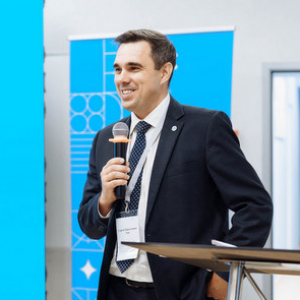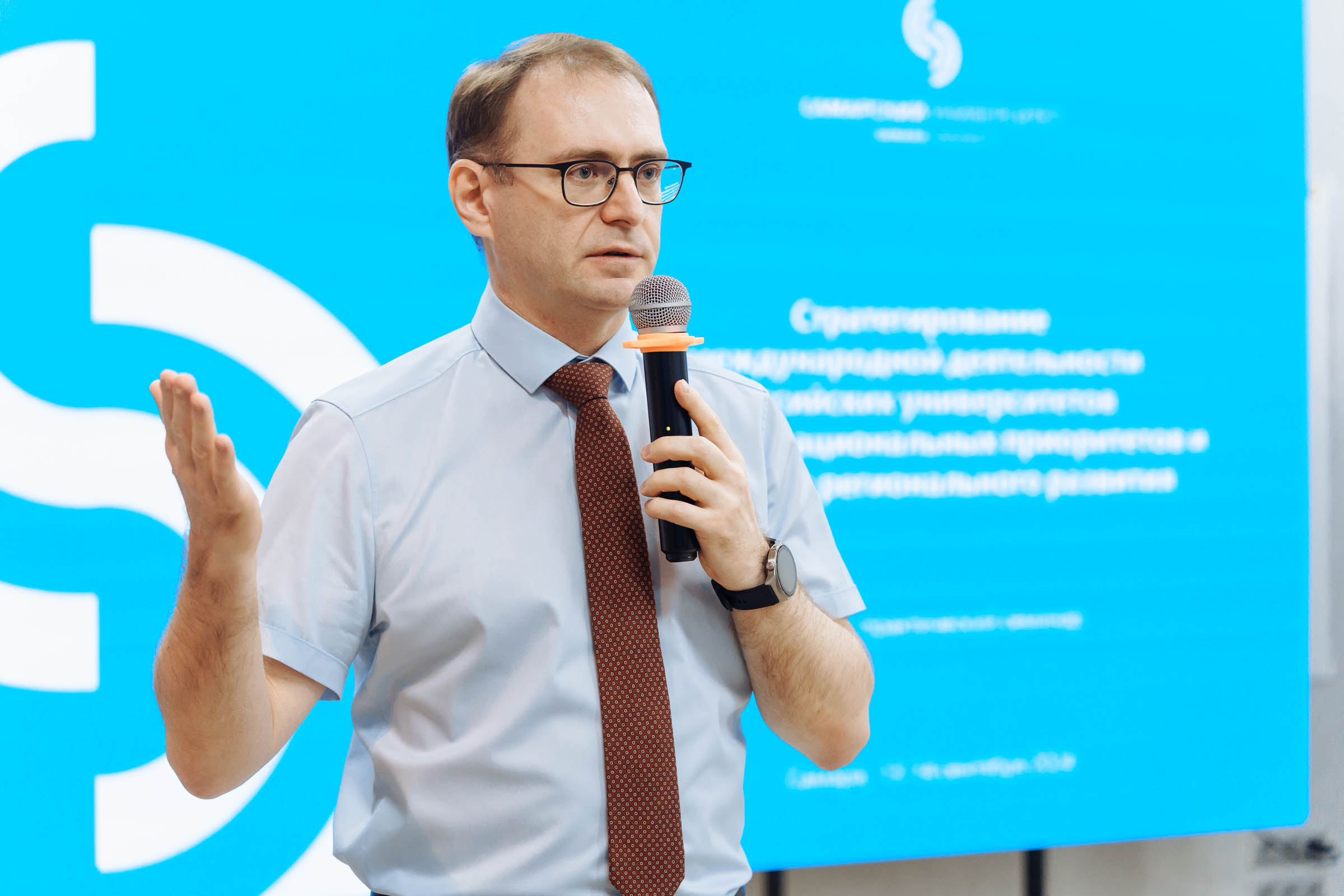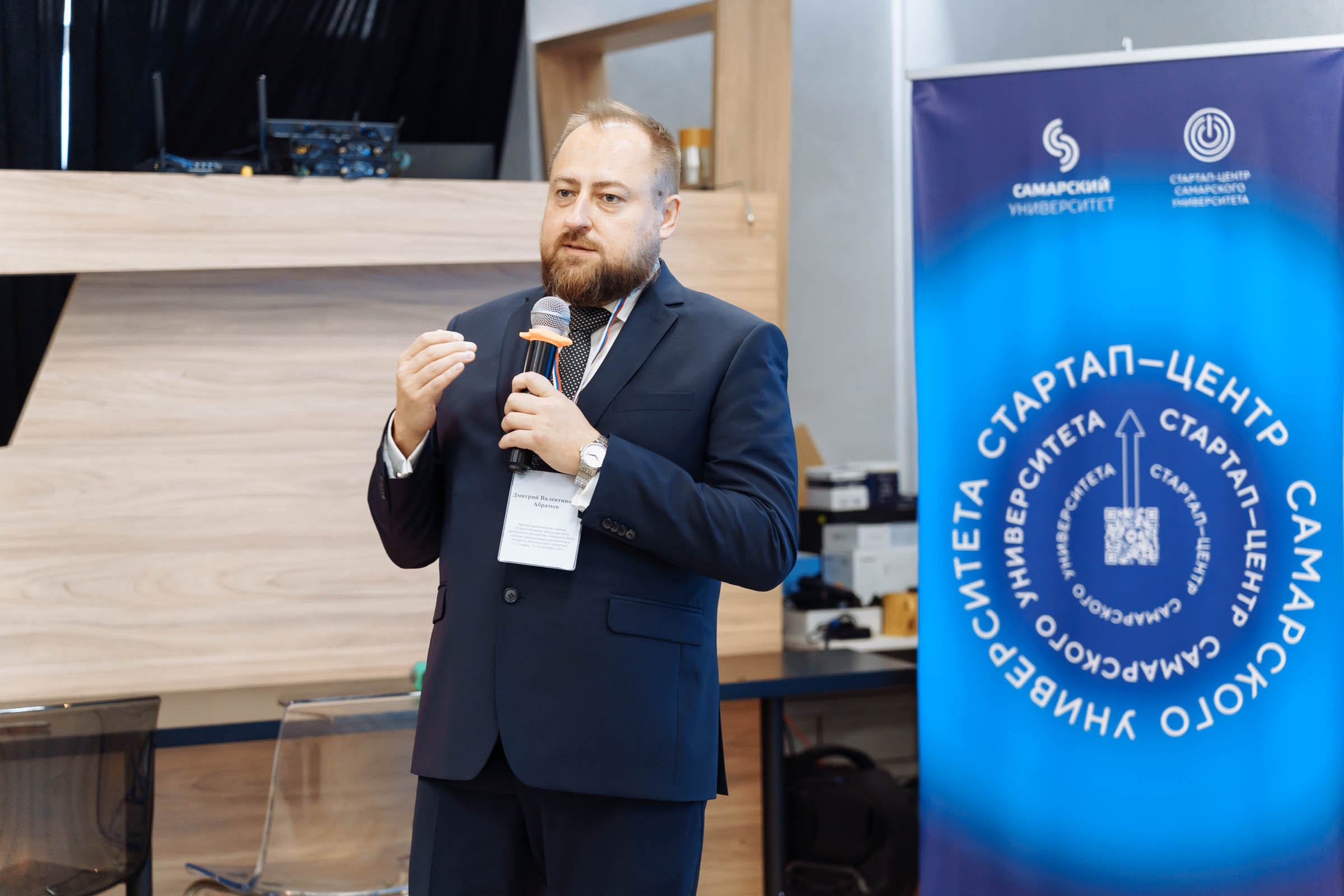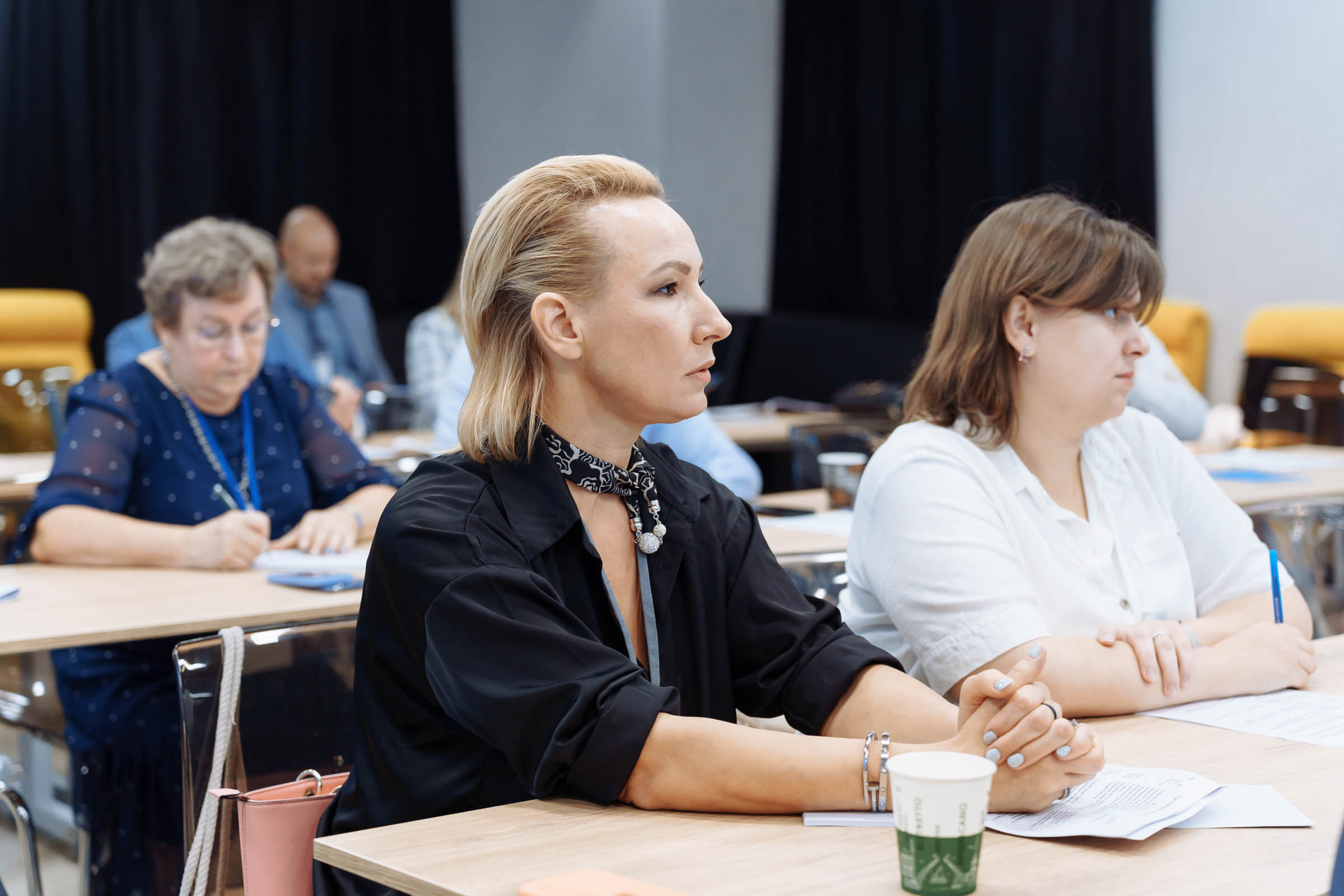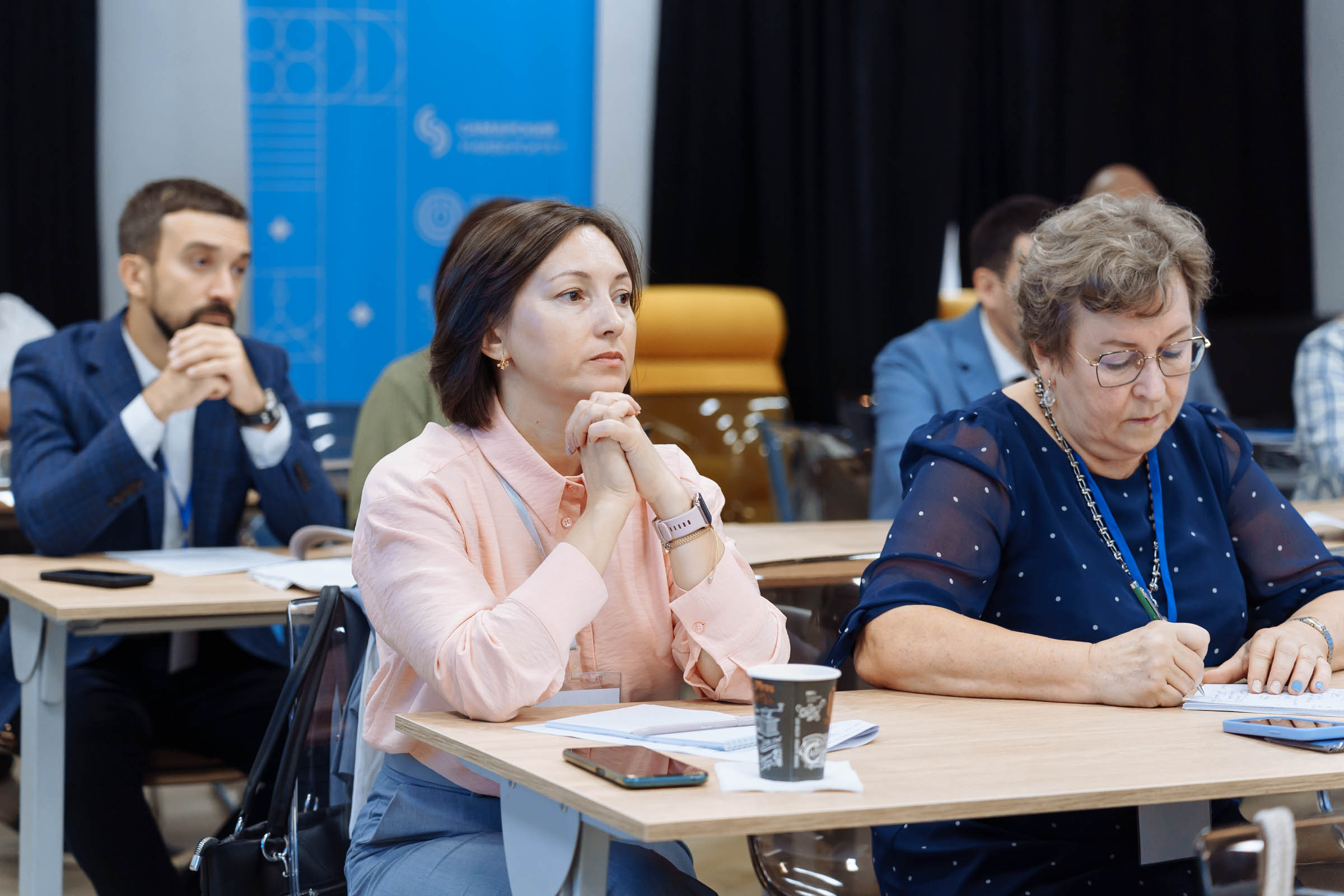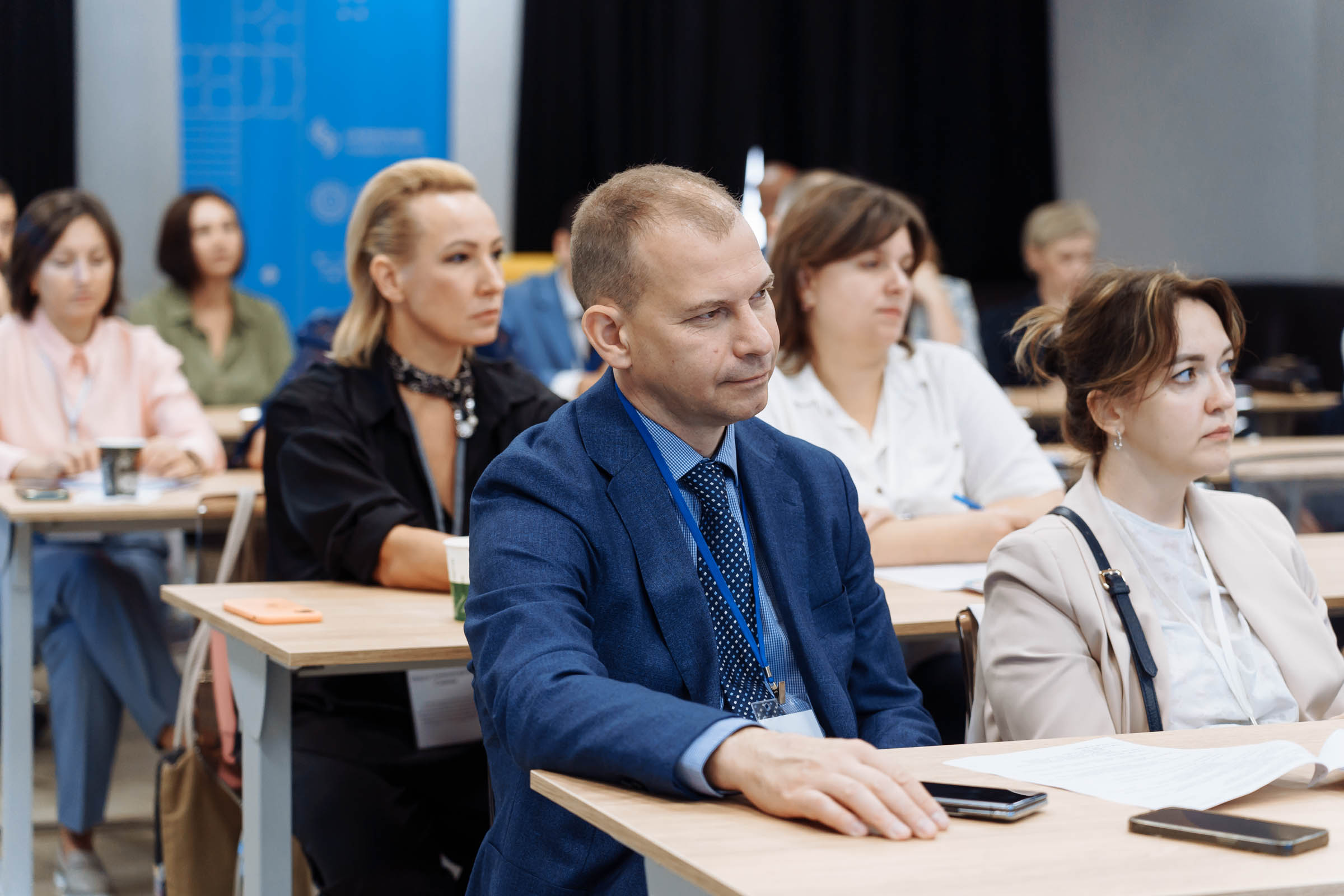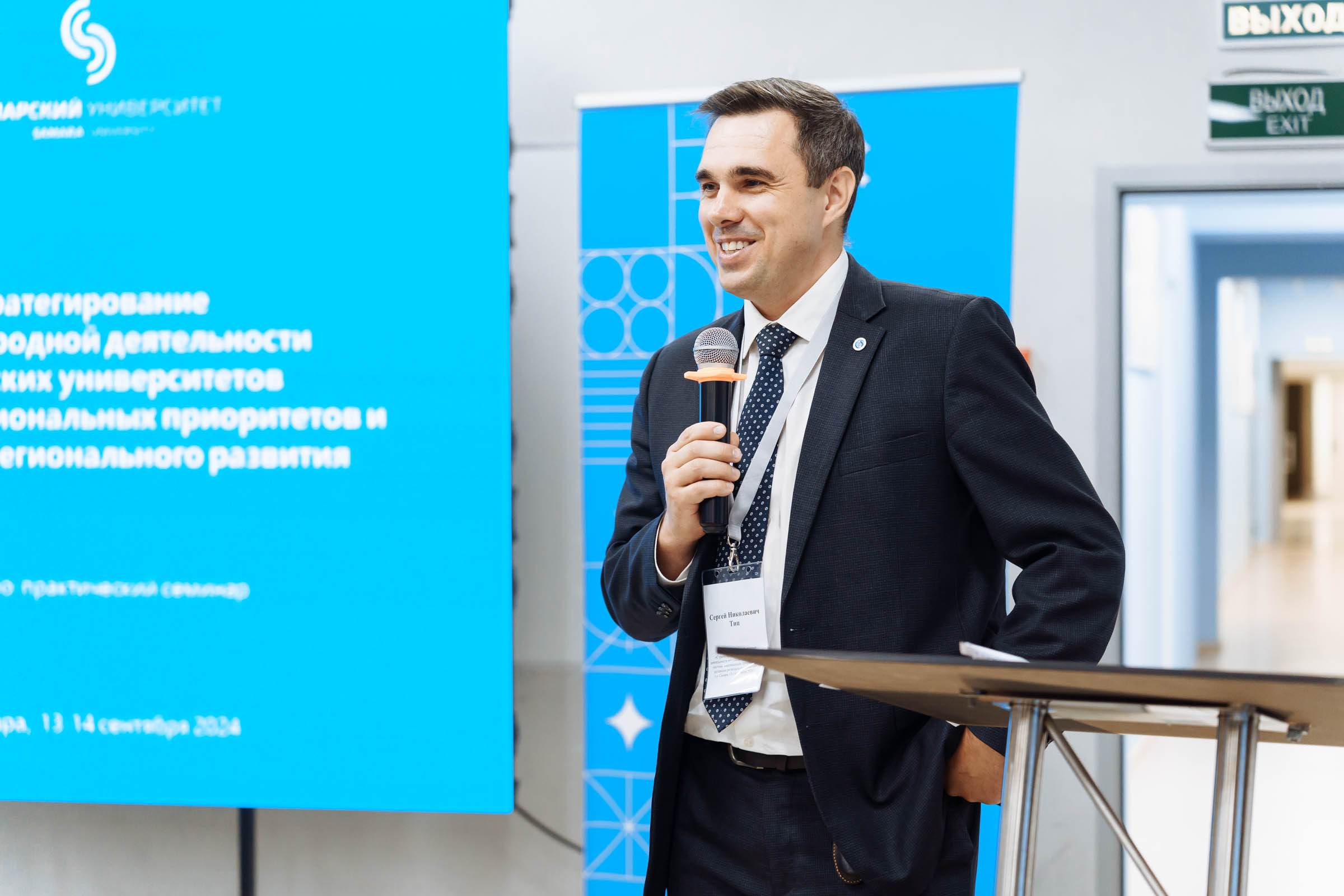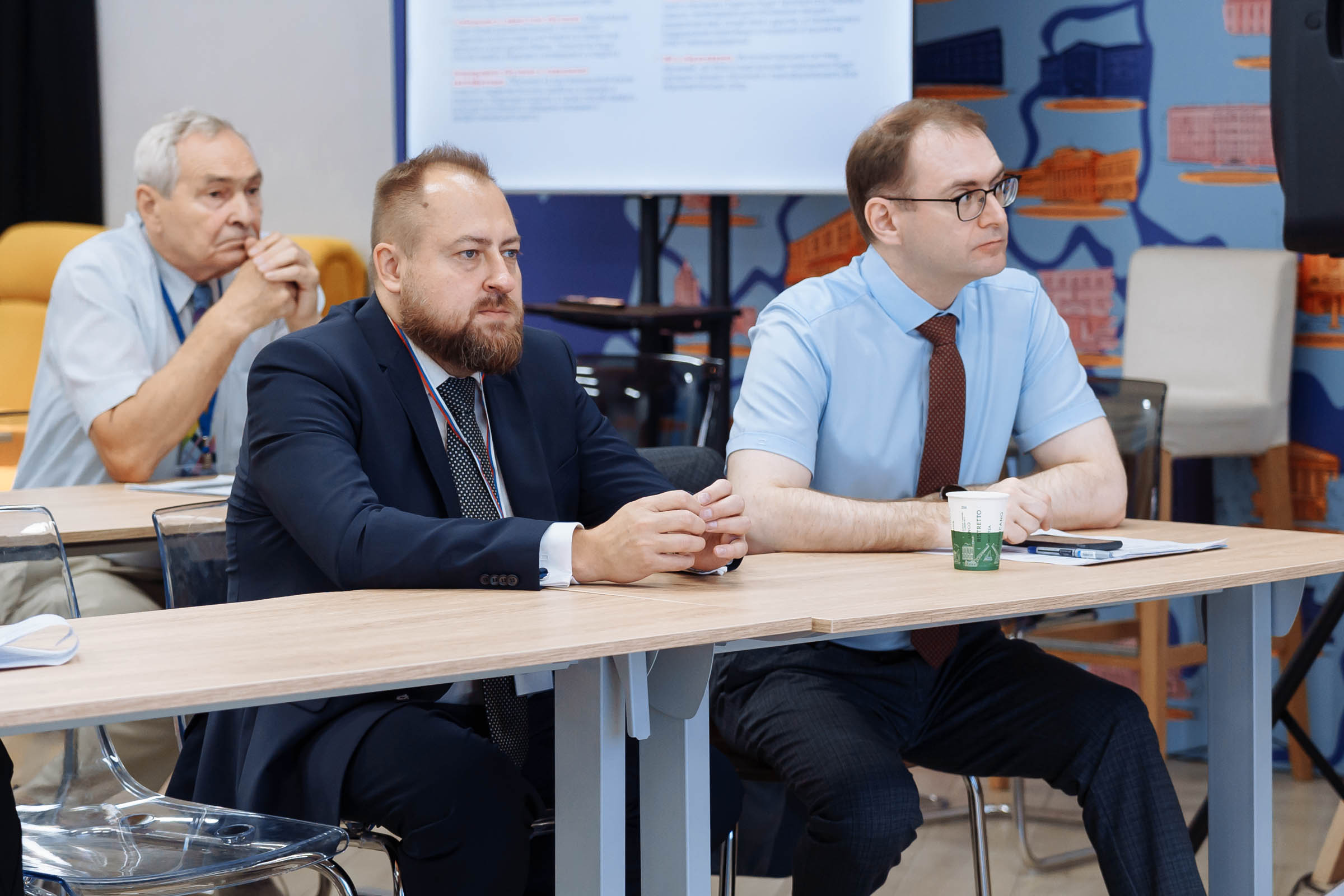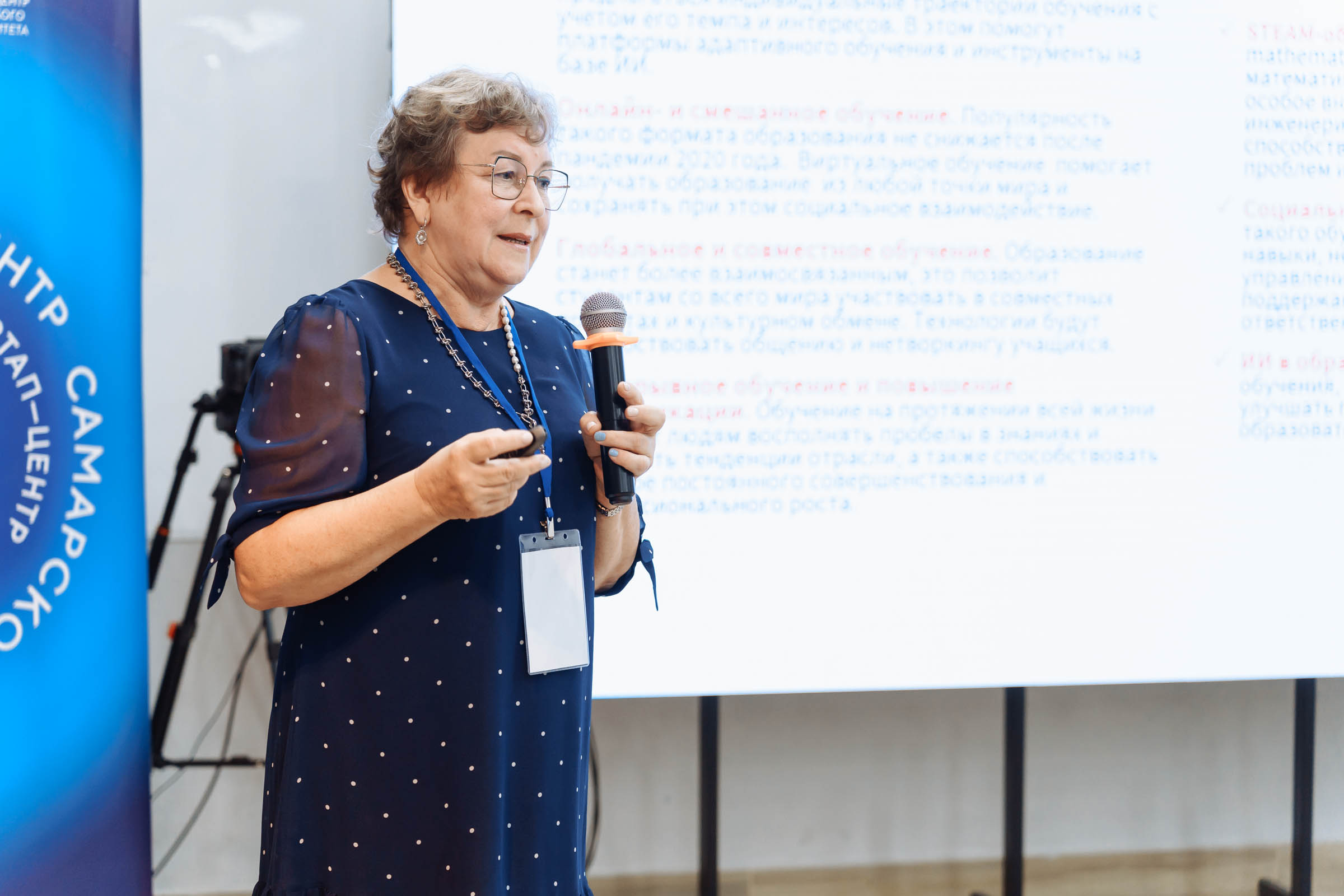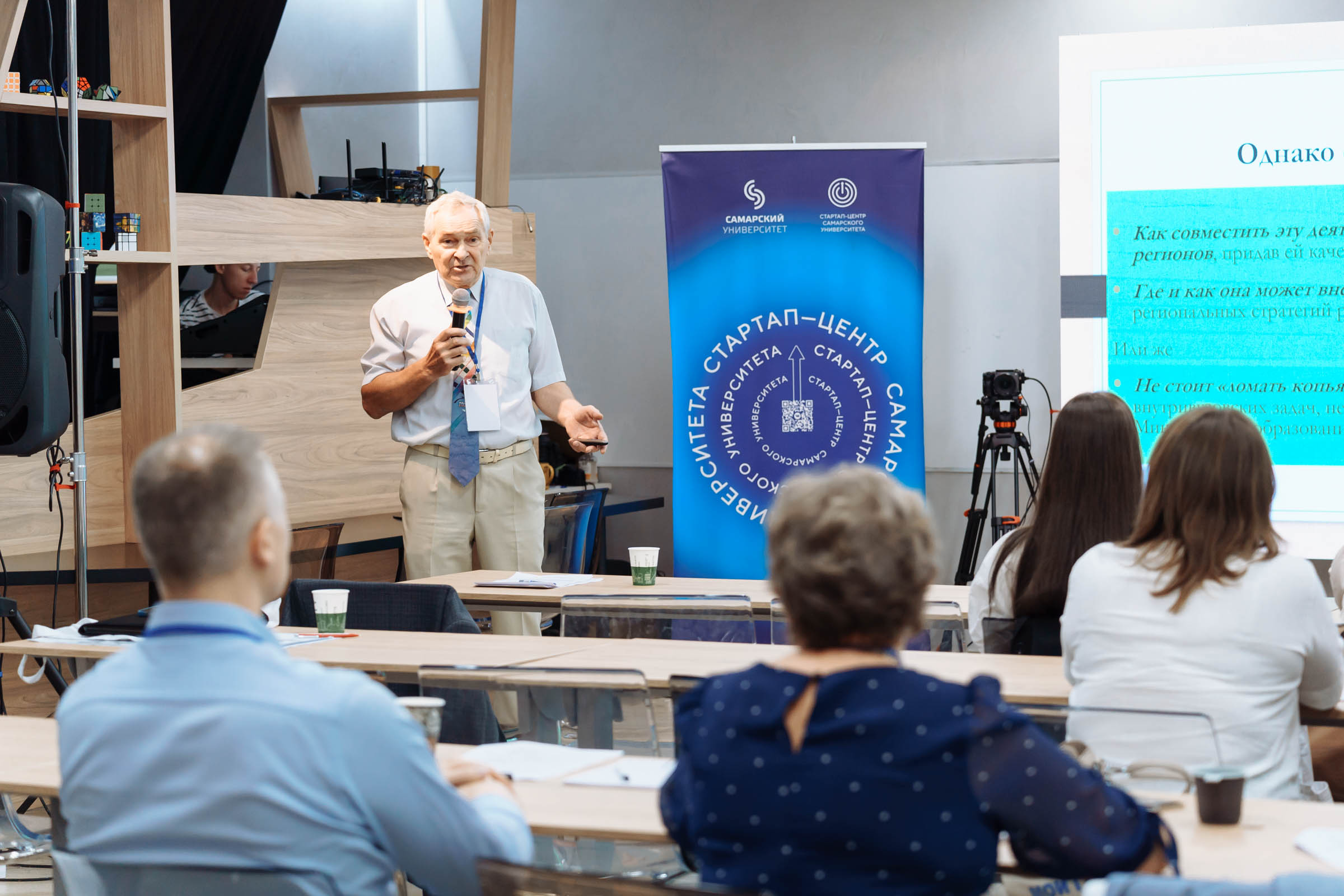An open discussion of the systematization of international activities of regional universities was held in Samara at the site of Samara National Research University with the participation of representatives of the government of the Samara Region. The goal of the brainstorming session was to develop mechanisms for consolidating the interests and resources of regional participants in foreign economic activity to promote the Samara Region at the international level and harmonize interdepartmental interaction at the provincial level.
Leading universities and scientific organizations from Moscow, St. Petersburg, Rostov, Kazan, Novosibirsk, Nizhny Novgorod and Perm took part in the seminar-meeting, and managed to solve certain problematic aspects related to increasing the efficiency of interaction at the regional level in the interests of international positioning.
The participants of the meeting paid special attention to the challenge outlined by the head of state, i.e. increasing the number of foreign students in Russian universities. "According to the Presidential Decree, by 2030 the number of foreign students should reach 500 thousand. Currently, according to various estimates, there are 320 to 380 thousand of them. According to the joint statement of the heads of Russia and China, by 2030 it is necessary to increase the number of students participating in various inter-university exchange programs to 100 thousand", said Evgeny Sagaydak, head of the Education Export Department of the Novosibirsk National Research State University, noting the growing interest of students from China in education in Russia. However, the conference participants noted the need for a comprehensive approach to solving this issue, which will not only avoid exacerbating the migration situation in the region, but also attract additional resources for the development of strategically important areas of the region's development.
As Vladimir Bogatyrev, Rector of Samara University, emphasized, the University is interested in the flow of foreign students, postgraduates and scientists to the region only increasing. "Studying and working in the Samara Region are becoming increasingly attractive for foreigners. However, there are still many issues that need to be resolved locally in order to successfully compete at the international level", the rector noted.
Dmitry Abramov, head of the Department of Investment, Innovation Policy and Foreign Economic Relations of the Samara Region’s Ministry of Economic Development and Investment, in turn, emphasized the role of education in strengthening the region's foreign economic relations: "When we talk about the export of educational services, we must understand that the Samara Region has great competitive advantages in terms of price-quality ratio for the countries of the global South and the global East. Our education is attractive to them. As an economic gateway for Asian countries, we focus on the SCO countries, the BRICS countries, and we understand perfectly well that the development of the country's technological sovereignty without the interaction of our universities with the scientific community of friendly countries is impossible."
Anton Gulbis, head of the International Cooperation Department of Samara National Research University, noted the importance of a comprehensive assessment of the creation and sustainability of cross-border transport corridors, the formation and improvement of which is one of the crucial components of the development strategy of the Samara Region.
Sergey Tits, head of the International Affairs Department of Samara University, believes that the basis for increasing the efficiency of international activities in the region is the creation of an expert community capable of quickly assessing the situation, identifying problematic issues and formulating proposals. "In the context of a rapidly changing international agenda and the restructuring of the regional management system, issues of consolidating the efforts of executive authorities, the University community, industry and business aimed at achieving regional development goals based on international activities are of utmost importance", noted Sergey Tits.
The significance of close interaction with industrial partners for both practice-oriented training and the subsequent establishment of foreign economic relations was also noted by Alexander Tarasov, Vice-Rector for International Relations of the Moscow National Research Power Engineering University, who has extensive experience in international cooperation, including the creation of university branches abroad.
Konstantin Egorov, Rector of Perm State Humanitarian Pedagogical University, spoke about the organization of work related to the project of the inter-university campus of the world level "Future of Parma", as well as about the experience of the university in the markets of South Africa and China. He emphasized the importance of horizontal connections and network interaction between regions both for the exchange of experience and for the replication of best practices.
As noted Vera Skorobogatova, the chief analyst of the Directorate for the Development of Education of RANEPA, in the Samara Region, where a large number of diverse universities are concentrated, the university community can act as a driver of the region's development: "The role of education is increasing and is becoming an effective tool for promoting foreign policy interests on the world stage. The interaction of universities with the scientific community of friendly countries is now considered as the basis for industrial cooperation."
Experts from the regions of Russia also brought up for discussion problematic aspects that hinder the development of effective international educational practices. Following the seminar-meeting, the participants will prepare specific proposals for the regional leadership and the Russian Ministry of Education and Science aimed at optimizing interdepartmental cooperation, ensuring the sustainability of cross-border transport corridors, and increasing the demand for Russian higher education on the world stage in the context of its transformation.
Vladimir Bogatyrev, Rector of Samara National Research University:
- During the seminar-meeting, we studied the successful experience of integrating our colleagues from universities in Moscow, St. Petersburg, Rostov, Kazan, Novosibirsk, Nizhny Novgorod and Perm into the global scientific and educational space. We are interested in the flow of foreign students, postgraduates and scientists to the Samara Region only increasing. I am confident that our initiatives will further help attract the attention of leading educational organizations of the BRICS countries to the Samara Region. The conditions for successful study and work of foreigners in a wide range of areas in our region are constantly improving, but there are still many challenges. The open discussion of the international activities of the region's universities with the participation of leading Russian universities and scientific organizations will result in proposals that we are going to present to the federal and regional level governments. We hope that the consolidated position and proposals developed in Samara will resonate and will allow us to increase the efficiency of international work not only in our region.
Photo: Olesya Orina
